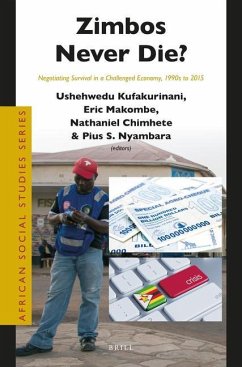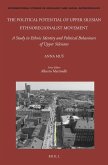This book seeks to explore how the Zimbabwean society and its institutions have survived if not succumbed to continuous economic crises in the country. From the 1990s Zimbabwe experienced a sustained economic decline challenged by both internal and external strains. Coupled with internal mis-governance and corruption, the nation plunged into a political and economic crisis which culminated in the second highest world inflation rate for an economy that is not at war. In the face of the harsh and continuously deteriorating economic environments, Zimbabweans as individuals as well as part of institutions adopted various strategies to negotiate and survive the economic scourge.
Contributors include Wellington Bamu, Nathaniel Chimhete, Anusa Daimon, Innocent Dande, Sylvester Dombo, Tinotenda Dube, Rudo Gaidzanwa, Tafara Evelyn Kombora, Ushehwedu Kufakurinani, Bernard Kusena, Eric Kushinga Makombe, Albert Makochekanwa, Blessed Masawi, Ivo Mhike, Joseph P. Mtisi, Joseph Mujere, Wesley Mwatwara, Pius S. Nyambara, Tinashe Nyamunda, Mark Nyandoro, Takesure Taringana and Nicola Yon (Mutimurefu).
Hinweis: Dieser Artikel kann nur an eine deutsche Lieferadresse ausgeliefert werden.
Contributors include Wellington Bamu, Nathaniel Chimhete, Anusa Daimon, Innocent Dande, Sylvester Dombo, Tinotenda Dube, Rudo Gaidzanwa, Tafara Evelyn Kombora, Ushehwedu Kufakurinani, Bernard Kusena, Eric Kushinga Makombe, Albert Makochekanwa, Blessed Masawi, Ivo Mhike, Joseph P. Mtisi, Joseph Mujere, Wesley Mwatwara, Pius S. Nyambara, Tinashe Nyamunda, Mark Nyandoro, Takesure Taringana and Nicola Yon (Mutimurefu).
Hinweis: Dieser Artikel kann nur an eine deutsche Lieferadresse ausgeliefert werden.
The seemingly unending 'Zimbabwean crisis' has been a subject of conjecture, scholarly analysis and debate since the early twenty-first century. However, to date, no study has unpacked with such clarity and depth of analysis some of the multifaceted issues covered by this magnificent book. It is a tremendous contribution to the growing historiography on a subject that continues to exercise the minds of scholars, politicians, economists and citizens alike. A must-read for scholars, students and everyone with the welfare of Zimbabwe at heart.
M. Nyakudya (lecturer, History Department, University of Zimbabwe)
M. Nyakudya (lecturer, History Department, University of Zimbabwe)








